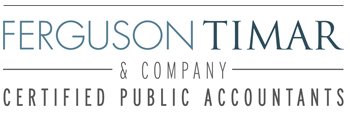
For decades, the concept of placing one’s family assets into a trust was associated with either charitable giving or facilitating the transfer of substantial wealth between parents and their adult offspring. In recent years, however, families from a variety of socio-economic backgrounds have started exploring the virtues of trusts beyond charitable legacies and traditional “trust fund baby” scenarios.
Different kinds of trusts serve different purposes. Some serve the financial interests of the wealthy, while others cater to the needs of middle-class and even lower-income families. Just a few of the benefits now commonly associated with different kinds of trusts include:
- Minimizing estate tax burdens
- Allowing assets to bypass probate
- Facilitating a family’s legacy
- Lawfully shielding assets from creditors
- Preserving an individual’s eligibility for government benefits
- Providing for loved ones with special needs
- Protecting assets from attempts to challenge an estate
- Controlling asset distribution subject to conditions
- Managing finances and property effectively under unique family circumstances
In this article, the knowledgeable CPAs at Ferguson Timar discuss these substantial benefits now commonly associated with moving family assets into a trust. As these benefits are no longer reserved for the wealthiest families in Southern California, the process of creating a trust is worth considering regardless of the ins and outs of your family’s unique financial circumstances.
Minimizing estate tax burdens
Many families that are uninterested in other potential benefits associated with trusts embrace this resource simply because it can help them to minimize their tax liability. Trust creation and tax-burden management can be an intricate process, but it is one that may be worth exploring if a family possesses significant assets.
Allowing assets to bypass probate
When assets are placed in a trust, the intention of the trust creator is made clear. As a result, the courts don’t need to subject the transfer of these assets to scrutiny upon the trust creator’s death. Therefore, virtually all assets that are transferred via trust are permitted to bypass the probate process entirely. This approach can save grieving loved ones time, money, effort, and stress. Many individuals opt to forgo distributing assets via a will and opt, instead, to transfer their wealth via a trust or multiple trusts.
Facilitating a family’s legacy
When a family is privileged enough to have wealth and assets to share, setting up a charitable giving trust can serve as a straightforward, low-stress way to make a sincere impact for the benefit of causes near and dear to that family.
Lawfully shielding assets from creditors
When assets are placed in an irrevocable trust, they are no longer considered the property of the trust creator. Instead, they are classified as property of the trust itself. As a result, creditors cannot generally claim and seize assets that are held in an irrevocable trust.
Additionally, individuals who are concerned about a certain family member who struggles with debt, gambling, or poor financial management can use the terms of a trust to shield assets from that loved one’s creditors. Instead of gifting that individual income or property directly, allowing a trustee to facilitate asset transfers in thoughtful ways can minimize the risk that an individual’s creditors will be able to seize assets beyond whatever property or income have been transferred to that individual at any given moment in time.
Preserving an individual’s eligibility for government benefits
Both adults with special needs and lower-income adults may benefit from having assets moved into a trust for their benefit, as this transition of property can help to ensure that their income level is such that they remain eligible for government benefits, including Medicaid. This goal is facilitated by the fact that assets belong to a trust, not to an individual beneficiary until said assets are distributed in specific ways.
Providing for loved ones with special needs
Some adults cannot manage their own finances effectively, often due to developmental disabilities or challenges with addiction. Moving assets into a trust for the benefit of a family member with unique needs can help to ensure that they are provided for in specific, effective ways that also safeguard the assets in question from mismanagement.
Protecting assets from attempts to challenge an estate
Families that struggle with internal tension and controversy can benefit from trust creation because it is far more difficult to challenge the validity of a trust than it is to challenge the validity of a will. As a result, the very act of moving family assets to a trust can serve as a deterrent to those family members who may be interested in “stirring the pot” once a member of the older generation has passed away.
Controlling asset distribution subject to conditions
If a family wants to entrust assets to one of its members subject to certain conditions, a trust can facilitate that aim. For example, a grandparent could condition distribution of trust assets to a grandchild upon their first graduating from college or reaching the age of 30. Along with giving the grandchild an added incentive to go to college, such conditions can also protect assets from potentially being squandered by someone who isn’t ready to be responsible for them.
Managing finances and property effectively under unique family circumstances
In addition to managing the situations noted above, trust creation can help to effectively manage the assets of blended families, young adults bound for college, older adults intent on avoiding guardianship, and a host of other family-related interests. Speaking with an experienced CPA about how trusts can help families to achieve these goals is usually the best first step forward in this regard.
Ferguson Timar Can Help Your Family to Safeguard and Manage Its Assets Effectively
Regardless of the specific financial aims that your family is interested in achieving, the savvy CPAs at Ferguson Timar can help you to explore how creating a trust could potentially aid in the realization of your goals.
Connect with our team today at (714) 204-0100 to begin discussing the dynamic ways in which trust creation can facilitate various tax, estate planning, and financial management priorities. We look forward to speaking with you.
